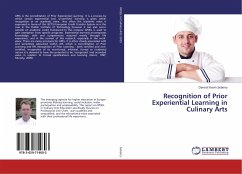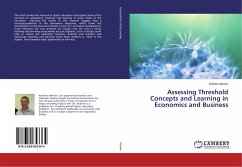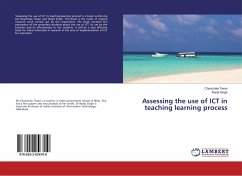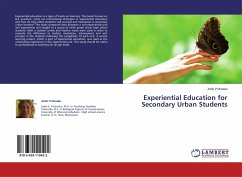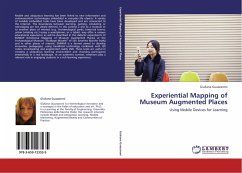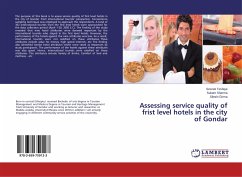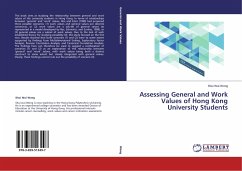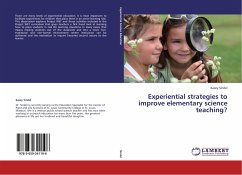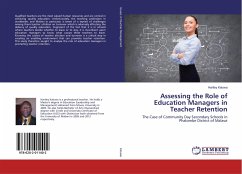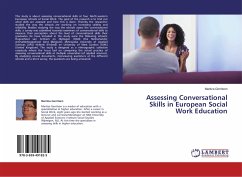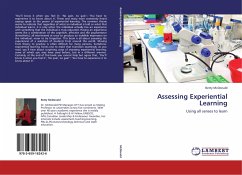
Assessing Experiential Learning
Using all senses to learn
Versandkostenfrei!
Versandfertig in 6-10 Tagen
32,99 €
inkl. MwSt.

PAYBACK Punkte
16 °P sammeln!
You ll know it when you feel it ; No pain, no gain ; You have to experience it to know about it . These and many more commonly heard sayings speak to the power of experiential learning. The common theme seems to indicate that regardless of what an individual is told or what that individual learns, it is only when the individual actually has an experience with something that the individual is truly educated. Having an experience seems like a combination of the cognitive, affective and the psychomotor (kinesthetic), all intertwined at once to produce an indelible impression on the individual, ne...
You ll know it when you feel it ; No pain, no gain ; You have to experience it to know about it . These and many more commonly heard sayings speak to the power of experiential learning. The common theme seems to indicate that regardless of what an individual is told or what that individual learns, it is only when the individual actually has an experience with something that the individual is truly educated. Having an experience seems like a combination of the cognitive, affective and the psychomotor (kinesthetic), all intertwined at once to produce an indelible impression on the individual, never to be forgotten. This book is all about assessing the experiences of a selection of students from around the world. Moving from theory to practice is often difficult for many persons. Somehow, experiential learning forces one to make that transition seamlessly. As you read, you ll hear about surprising ways of assessing experiential learning, some of which you may have used before, but in a different manner. Certainly, at the end of this book you cannot help but agree that, You ll know it when you feel it ; No pain, no gain ; You have to experience it to know about it .





